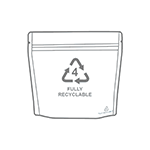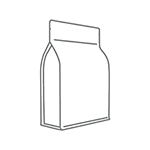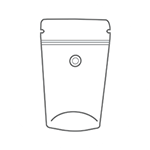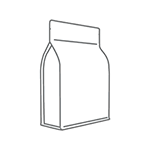
ABA Industrial
biodegradable at 20-30°C, within 180 days
Overview
In Australia and New Zealand, for a material to be certified as industrial compostable, it must comply with
the Australasian Bioplastics Association (ABA) standard AS 4736-2006. The AS 4736 standard provides the
criteria against which bioplastic materials that are intended to biodegrade in industrial anaerobic
composting facilities are assessed.
Industrial compost facilities are very different to home composting systems. Industrial composting
facilities are able to process organic waste at high temperatures (typically 55°C or higher) that cannot be
replicated in the home, thus accelerating the rate at which the waste decomposes. Therefore, just
because something has been certified for the AS 4736-2006 standard, does not mean it will decompose
in the same way in a home compost system.
The AS 4736 standard is similar to the European EN 13432 standard, but has an additional eco-toxicity test
which ensures the compost created supports healthy soil.
Certification requirements
In order to comply with the AS 4736‐2006, bioplastic materials need to meet the following requirements in an industrial compost environment:
– Minimum of 90% biodegradation of bioplastic materials within 180 days in compost.
– Minimum of 90% of bioplastic materials should disintegrate into less than 2mm pieces in compost within 90 days.
– No toxic effect of the resulting compost on plants and earthworms.
– Hazardous substances such as heavy metals should not be present above the maximum allowed levels.
– Bioplastic materials should contain more than 50 percent organic materials.
Frequently asked questions
Compostable materials are designed to be composted and unfortunately that means they cannot be mechanically recycled. Although commercial composting systems are not currently widely available on a kerbside basis this is changing rapidly and so too is the rate of home composting. For further reading please see our blog post on Composting vs Recycling.
This is a great question and the answer is nuanced. They don’t contain plastic as most people know it but they are made from bioplastic, which is technically a type of plastic. Swisspac has a range of bioplastics that are made using our compostable renewable Plantmade™ technology.
















